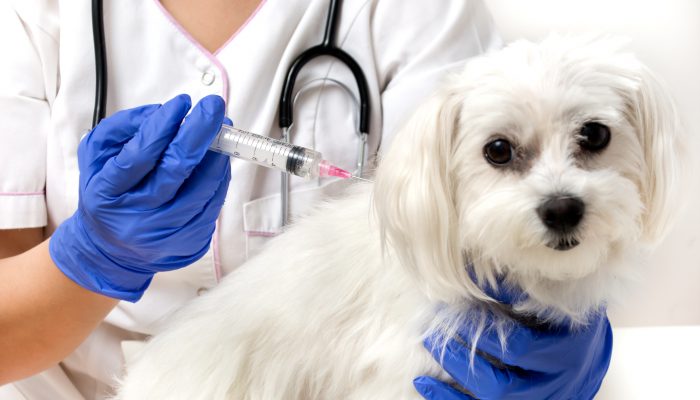Rabies is almost always fatal once clinical symptoms appear in humans. Fortunately, it is preventable. Because prevention begins with information, the Health Department is highlighting this deadly disease so that you know what to do if you or your pet is exposed to the rabies virus.
Rabies is primarily spread through a bite or scratch from an infected mammal. In the United States, the virus is mainly found in wild animals such as bats, raccoons, groundhogs, foxes, and skunks, but has been found in some domestic animals or pets such as dogs and cats. Small rodents including rats, mice, squirrels, guinea pigs and hamsters almost never have rabies.
When a sick animal bites or scratches another animal or human, the virus can be transmitted through broken skin. It is also possible for rabies to be transmitted when infected saliva comes into contact with open wounds or mucous membranes including the eyes, mouth and nose.
The first symptoms of rabies infections in humans are usually general and increase in severity as the infection spreads to the brain. This may look like fever and flu-like symptoms progressing to confusion, agitation, abnormal behavior, hallucinations and hydrophobia or fear of water.
How to prevent rabies
The best protection against rabies is to vaccinate your dogs and cats. In Philadelphia, all cats and dogs over three months of age must be vaccinated for rabies. After the first vaccine, cats and dogs must be vaccinated each year, or every three years depending on the vaccine that is administered.
Never approach, pet, or capture undomesticated or wild animals. Also, keep cats indoors and dogs on leashes to avoid contact with wild animals.
The Philadelphia Animal Care and Control Team (ACCT) will respond if raccoons, bats or other wild animals are in common areas of your home, excluding walls, attics or crawl spaces. Call ACCT at 267-385-3800. If bats are entering your home through gaps and cracks, contact a licensed wildlife pest control company to assess and seal off entry points.
ACCT responds to reports of stray dogs, but cannot respond to reports of stray cats, unless cats – or other animals – appear sick or injured. ACCT can provide information about Trap-Neuter-Release groups for cats, which can assist with vaccinations and spaying or neutering cats.
Treatment for people exposed to rabies
For exposures involving pets, rabies treatment depends on the health of the animal 10 days after the exposure. If the pet is healthy and alive 10 days after the incident, the person exposed does not need the rabies vaccine. The Health Department will check with the pet owner to see if the pet is healthy after 10 days. To report an animal bite, scratch or possible rabies exposure, call the Health Department’s Division of Disease Control (DDC) at 215-685-6741.
If you had an exposure from an animal that may be rabid, you should get post-exposure prophylaxis (PEP), a series of four vaccinations and an initial dose of rabies immune globulin as soon as possible. The series is effective at preventing rabies and should be administered when:
- The animal’s location is unknown or uncertain
- The animal tests positive for rabies
- Pets are NOT observed healthy after 10 days or NOT rabies tested
Most local emergency departments have rabies vaccines and immune globulin. If you do not have insurance or are having difficulty getting treatment, please call DDC. Again, that number is 215-685-6741.




